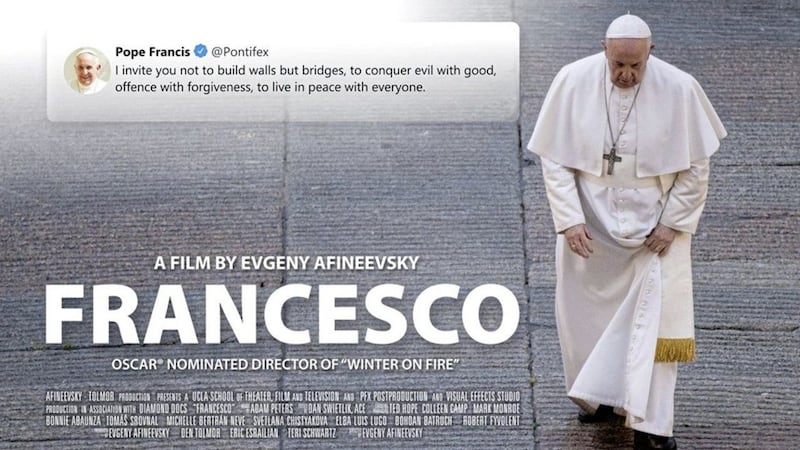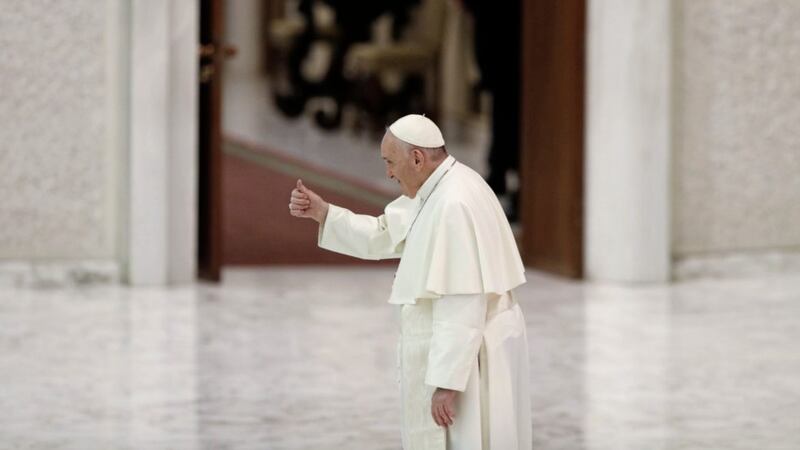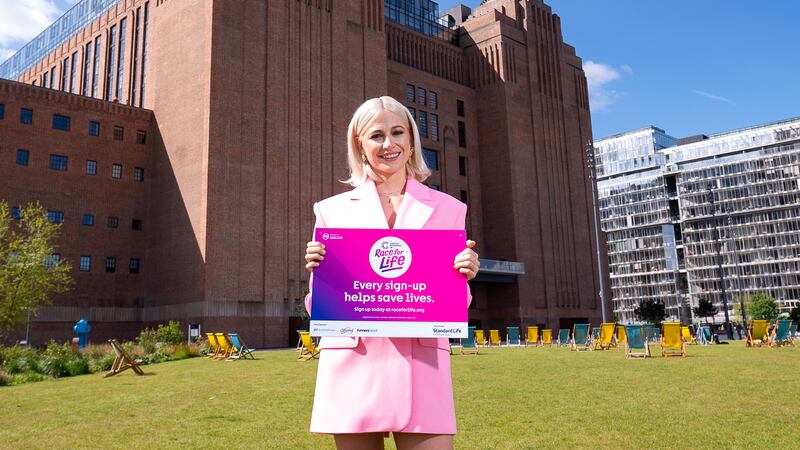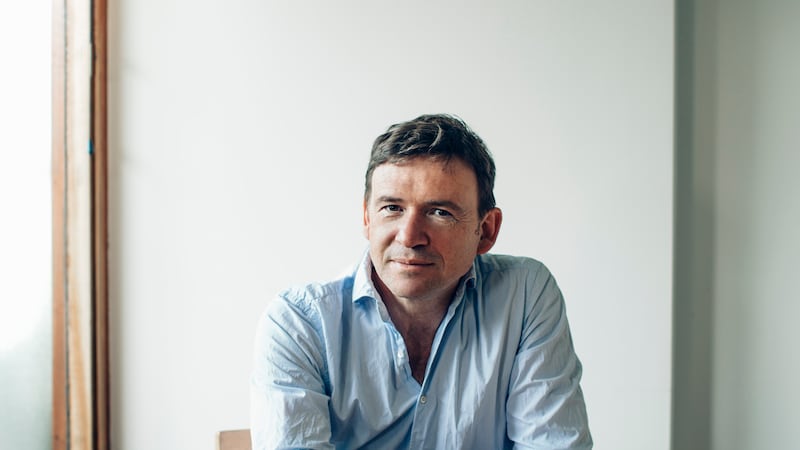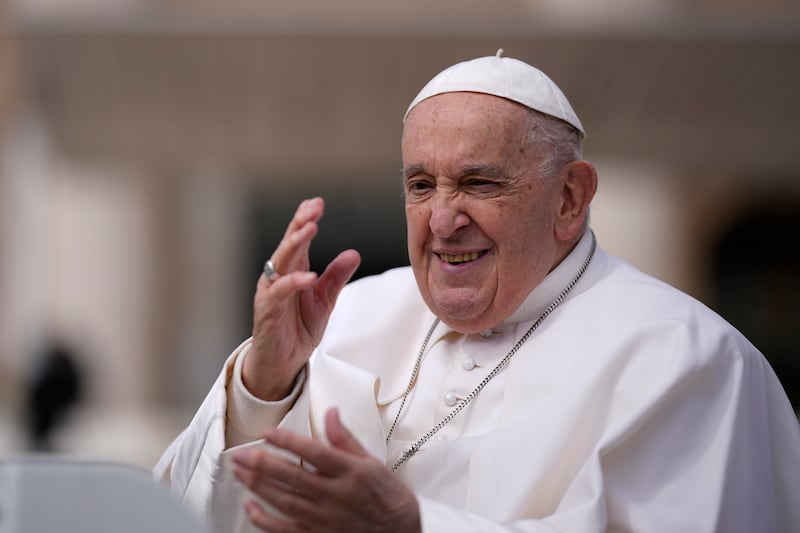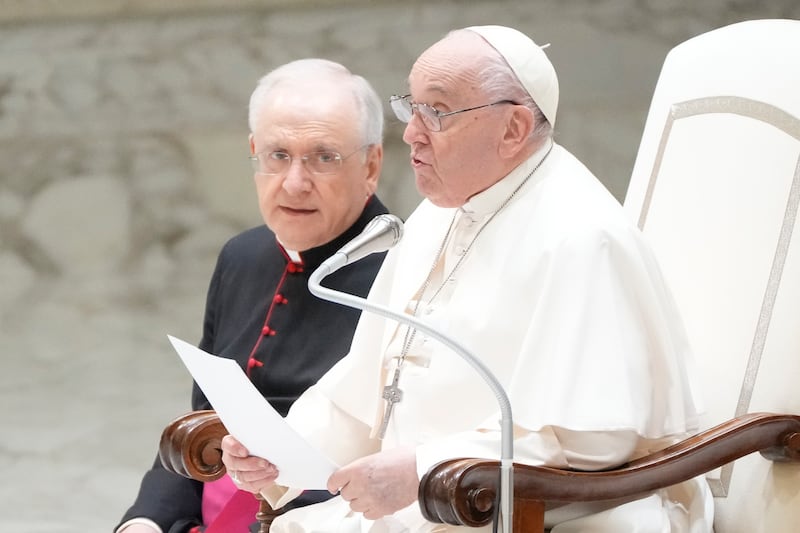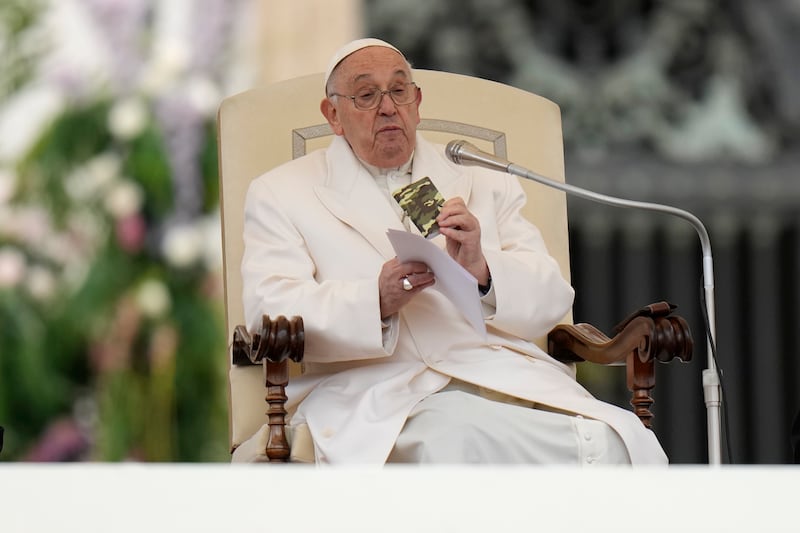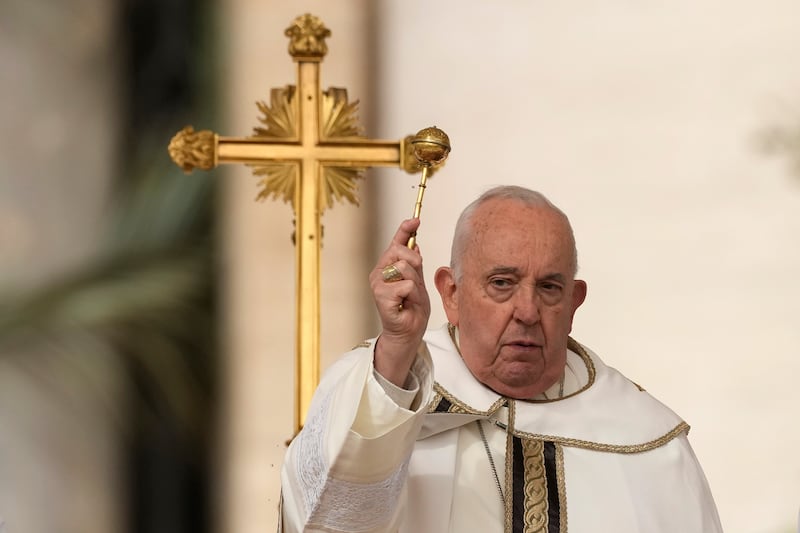THE Vatican has said Pope Francis's controversial comments on same-sex civil unions in the documentary Francesco were taken out of context.
In the remarks, which were made public last month, the Pope made a remarkable departure from traditional Catholic teaching and official Vatican doctrine by appearing to back civil unions for same-sex couples.
"Homosexuals have a right to be part of the family. They're children of God and have a right to a family," he said.
"Nobody should be thrown out, or be made miserable because of it.
"What we have to create is a civil union law. That way they are legally covered."
The Vatican's secretariat of state moved to clarify the matter at the weekend, issuing guidance to its ambassadors, or nuncios.
The guidance confirmed that while Pope Francis did believe that gay couples should have legal protections, the section of the Francesco documentary that created such uproar was the result of parts of an old interview being spliced together.
The Vatican nuncio to Mexico, Archbishop Franco Coppola, posted the unsigned guidance on his Facebook page on Sunday.
In it, the Vatican confirmed that Francis was referring to his position in 2010 when he was archbishop of Buenos Aires and strongly opposed moves to allow same-sex marriage.
Instead, he favoured extending legal protections to gay couples under what is understood in Argentina as a civil union law.
While Francis was known to have taken that position privately, he had never articulated his support while Pope.
As a result, the comments made headlines, primarily because in 2003 the Vatican's Congregation for the Doctrine of the Faith - then headed by Cardinal Joseph Ratzinger, later Pope Benedict XVI - issued a document prohibiting such endorsement.
It explained, among other things, that the Catholic Church's support for gay people "cannot lead in any way to approval of homosexual behaviour or to legal recognition of homosexual unions".
Amplifying the controversy - and adding to confusion among even the closest Vatican and Papal observers - was the claim by Francesco director Evgeny Afineevsky that the Pope had made the civil union comments to him in an entirely new interview.
However, it appears that Francis's comments were actually taken from a May 2019 interview with Mexican broadcaster Televisa that were never broadcast.
The 2019 interview was filmed using Vatican cameras; there are claims that when the Vatican provided the footage to the Mexican broadcaster, it had already cut the quote.
Pope Francis answered two different questions at two different times that... were edited and published as a single answer without proper contextualisation, which has led to confusion
It appears that the relevant section was discovered by Mr Afineevsky; in the course of making his documentary, he was given access to the Vatican archives, where he must have uncovered the original, uncut footage.
The guidance issued by the secretariat of state does not address the issue of the cut quote or that it came from the Televisa interview, only that it was from a 2019 interview and that the comments used in the documentary spliced together parts of two different responses in a way that removed crucial context.
"More than a year ago, during an interview, Pope Francis answered two different questions at two different times that, in the aforementioned documentary, were edited and published as a single answer without proper contextualisation, which has led to confusion," said the guidance posted by Archbishop Coppola.
In his film, Mr Afineevsky recounts the story of Andrea Rubera, a married gay Catholic who wrote to the Pope asking for his advice about bringing into the Church his three young children with his husband.
It was an anguished question, given that the Catholic Church teaches that gay people must be treated with dignity and respect but that homosexual acts are "intrinsically disordered".
The Church also holds that marriage is an indissoluble union between man and woman and, as a result, gay marriage is unacceptable.
Pope Francis also insisted that he always maintained Catholic doctrine and said there was an 'incongruity' for the Catholic Church as far as 'homosexual marriage' is concerned; the documentary eliminated that context
Mr Rubera recounts how Pope Francis urged him to approach his parish transparently and bring the children up in the faith, which he did.
After the anecdote ends, the film cuts to the Pope's comments from the Televisa interview: "Homosexual people have the right to be in a family. They are children of God
"You can't kick someone out of a family, nor make their life miserable for this.
"What we have to have is a civil union law; that way they are legally covered."
The Vatican guidance said that these comments by the Pope - about gay people having the right to be in a family - referred to parents with gay children, and the need for them to not 'kick their children out' or discriminate against them.
This meant that Pope Francis was not endorsing the right of gay couples to adopt children, even though the placement of the quote directly after Mr Rubera's story gave that impression.
The Pope's comments about gay civil unions - "What we have to create is a civil union law. That way they are legally covered" - came from a different part of the Televisa interview and included several caveats not included in the Francesco film.
In the Televisa interview, Francis made clear he was explaining his position about teh circumstances in Buenos Aires 10 years ago; he was not talking about Mr Rubera's situation or gay marriage more broadly.
In the Televisa interview, Francis also insisted that he always maintained Catholic doctrine and said there was an "incongruity" for the Catholic Church as far as "homosexual marriage" is concerned; the documentary eliminated that context.
The Vatican guidance insists that the Pope was not contradicting Church doctrine, though it does not explain how his support for extending Argentine legal protections to gay couples in 2010 could be squared with the 2003 document from the Congregation for the Doctrine of the Faith, which says "the principles of respect and non-discrimination cannot be invoked to support legal recognition of homosexual unions".
Clearly, there is more to be said about this important matter.
